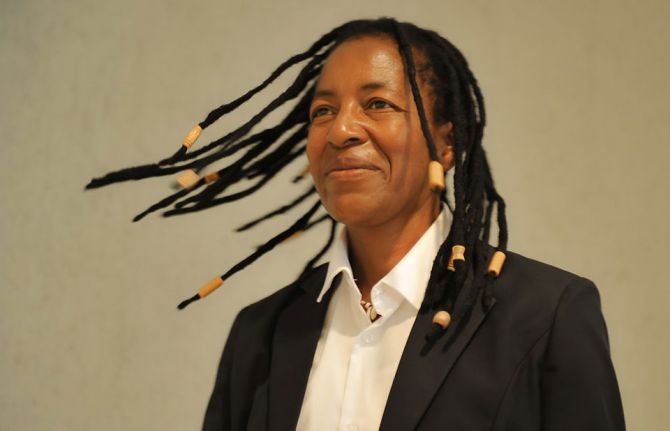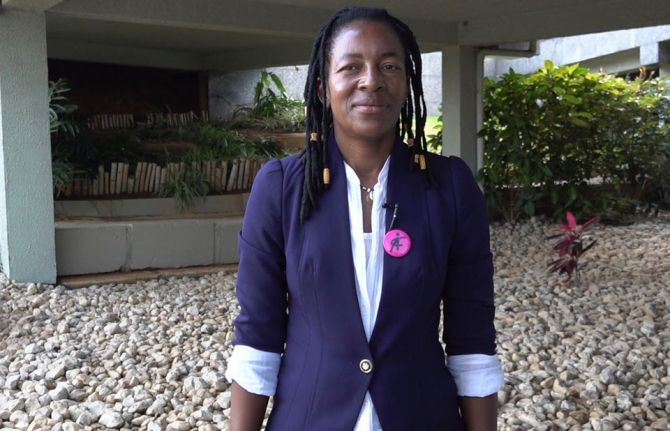



Feature Story
Be proud
04 March 2020
04 March 2020 04 March 2020Ronie Zuze believes in the power of information. Not only did it save them (Ronie uses the pronouns them/they/their), they are convinced that it can change lives and mindsets.
As the first born, their father was ecstatic when he was told he had a son, they recounted. “I was born with ambiguous genitalia, so doctors assigned the male gender,” Ronie said.
Ronie grew up as a boy until the age of 16 years.
“That’s when my body started developing some female features, despite the fact that I associated myself with being a boy,” the Zimbabwean said.
Ronie’s father panicked and sent Ronie to live in another town with his former wife.
“My father became very confused and fearful of the stigma and discrimination,” Ronie said, “so he sent me away.”
Ronie’s mother cautioned them—she immediately told they must now be a girl—to be careful around other people. “Sleepovers and contact sports were forbidden,” Ronie recalled.
Ronie believes the shame around who they were propelled them into a tailspin of denial and self-hate. “I attempted to kill myself two to three times and consumed excessive amounts of alcohol and drugs,” Ronie said.
They started seeking out help on the Internet, convinced there were others in the same situation, which led to a slew of information about what it meant to be an intersex person.
Intersex people are born with any of several variations in sex characteristics, including chromosomes, gonads or genitals that do not fit the typical definitions of male or female.
“The flood of information empowered me to understand who I was,” Ronie said. “I stopped being shameful of myself.”
Most of the people they engaged with were in Europe or North America. “If 1.7–2% of the global population is intersex, then I knew there must be more than just me in Africa,” Ronie said, brushing aside a dreadlock.
Ronie joined a local group for lesbian, gay, bisexual, transgender and intersex people and initially self-identified as a lesbian, but it did not feel right. Even the community didn’t understand intersex people, Ronie said. That’s when they decided to become a voice for people like them and started an organization, the Intersex Community of Zimbabwe, in 2018. Ronie now identifies as non-binary.
“As an activist, it means I empower other intersex people, I speak for those who cannot speak out, I encourage them to be proud and I provide information to them as well as support them,” Ronie said.
Ronie spends a lot of time with other intersex people and their immediate families. They pound the pavement telling parents to let nature take its course and not rush into assigning one gender to their intersex children. They believe an intersex person should decide for themselves when they are old enough to make that decision.
“I know there is a lot of stigma and misconceptions about intersex bodies, but parents need not panic,” Ronie said. “I want intersex people to know there is nothing to be ashamed of, so be proud.”



